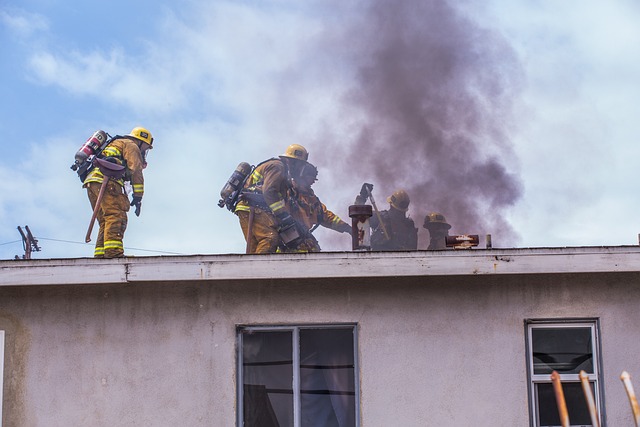In Illinois, especially in Chicago's competitive real estate market, property disclosure laws are paramount for transparent and legally sound transactions. When selling a house with fire damage, sellers must disclose known issues like structural damage, water damage from firefighting, and health hazards. Failure to do so can result in legal problems and financial claims. To ensure compliance, prepare a detailed list of repairs and known problems related to the fire damage, facilitating a smoother process for all parties involved, particularly when addressing "how to sell a house with fire damage Chicago."
In the vibrant real estate market of Chicago, understanding Illinois’ property disclosure laws is crucial for both sellers and buyers. This comprehensive guide navigates the intricate details, focusing on fire damage disclosures. Learn about the legal obligations of sellers regarding past fire incidents and the potential implications of non-disclosure in the Chicago metro area. Discover practical steps to sell a house with fire damage, ensuring transparency and facilitating a smooth transaction in today’s competitive market.
- Understanding Illinois Property Disclosure Laws
- Fire Damage: What Sellers Need to Disclose
- The Impact of Non-Disclosure in Chicago Real Estate
- Steps to Sell a House with Fire Damage in Chicago
Understanding Illinois Property Disclosure Laws

In the state of Illinois, property disclosure laws are designed to ensure transparency and protect homebuyers by requiring sellers to disclose any known issues or defects within a property. When it comes to selling a house with fire damage in Chicago, understanding these laws is paramount for both parties involved. Sellers must accurately reveal any significant problems, including structural damage, water damage from firefighting efforts, or potential health hazards resulting from the incident. Failure to do so may lead to legal repercussions and financial claims post-sale.
Knowing how to sell a house with fire damage in Chicago involves familiarizing yourself with these disclosure laws. Sellers should prepare a detailed list of repairs made, ongoing repairs, and any known issues that might affect a buyer’s decision. This process not only helps in maintaining legal compliance but also fosters trust between the seller and potential buyers, ensuring a smoother transaction.
Fire Damage: What Sellers Need to Disclose

When it comes to disclosing fire damage in Chicago, sellers must be transparent and honest about any past or current issues related to this matter. Fire damage can significantly impact a property’s value and safety, making proper disclosure a legal requirement in Illinois. Sellers should provide detailed information about the extent of the damage, including when and how the fire occurred, and what steps have been taken to repair or mitigate the effects.
In Chicago, real estate transactions are subject to specific laws that require sellers to disclose known defects or hazards. Fire damage falls under this category, as it could potentially pose risks to future occupants. Sellers should be prepared to offer evidence of repairs, inspections, or assessments to demonstrate that the property is safe and in compliance with local building codes. Failure to disclose fire damage could lead to legal repercussions and may even void a buyer’s home insurance policy.
The Impact of Non-Disclosure in Chicago Real Estate

In Chicago real estate, property disclosure is a critical aspect that can significantly impact the selling process, especially when dealing with issues like fire damage. The city’s real estate market is bustling, and buyers are often well-informed about the state of the properties they intend to purchase. When a seller omits or misrepresents material defects, such as fire damage during the sale, it can lead to severe legal consequences. Buyers in Chicago have rights protected by law, ensuring they receive accurate information about any potential issues with a property.
How to sell a house with fire damage in Chicago becomes a complex matter when non-disclosure is involved. Sellers must be transparent and provide detailed disclosure statements outlining any significant repairs or issues, including structural damage caused by fires. Failing to do so may result in legal disputes, delays, or even the buyer terminating the contract. Being upfront about fire damage allows potential buyers to make informed decisions, negotiate terms, or choose alternative options, ensuring a smoother transaction process.
Steps to Sell a House with Fire Damage in Chicago

Selling a home with fire damage in Chicago involves several key steps, ensuring compliance with local disclosure laws. First, conduct a thorough assessment to understand the extent of the damage and create a detailed repair estimate. Engage the services of reputable contractors who can restore your property to its pre-fire condition or offer expert advice on cost-effective solutions.
Next, disclose all relevant information about the fire and subsequent damages in your property disclosure form accurately. Be transparent about any known issues, such as structural damage, water intrusion, or potential health hazards from smoke and soot. This step is crucial for avoiding legal complications later. Additionally, consult with a real estate professional who specializes in Chicago market dynamics to set realistic expectations regarding pricing and marketing strategies for your fire-damaged property.
Selling a home with fire damage in Chicago involves understanding and adhering to strict property disclosure laws. By disclosing any potential hazards, including fire damage, you protect yourself from legal repercussions and ensure transparency for buyers. When navigating the process of selling a house with fire damage in Chicago, it’s essential to follow regulatory guidelines to avoid delays or legal issues. This includes conducting thorough repairs, gathering necessary documentation, and openly communicating with prospective buyers about the property’s history. By doing so, you can navigate the sale seamlessly while adhering to local real estate regulations, ultimately facilitating a successful transaction for all parties involved.






